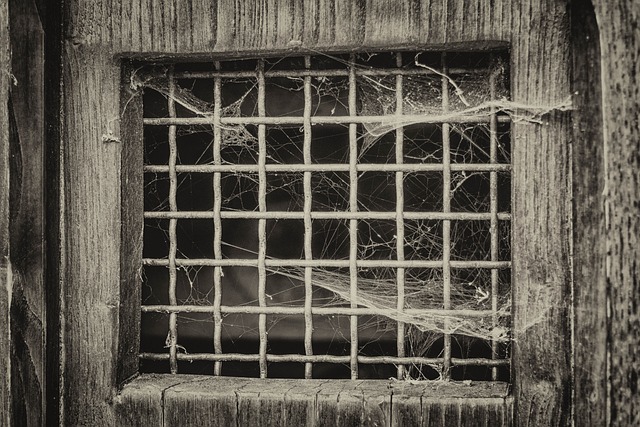Rural and urban areas exhibit stark contrasts in DUI (Downward Urbanization Impact) legislation, significantly impacting homeownership as a financial security pillar. While rural settings offer lower land values and supportive communities, making ownership attractive, urban regions grapple with high property prices, complex zoning laws, and competitive markets that hinder potential buyers. Rural-urban disparities in DUI legislation lead to differing asset protection strategies: strict enforcement in cities versus more lenient rules in rural areas, influenced by local customs and community engagement. Understanding these regional differences is vital for homeowners seeking tailored legal advice and comprehensive insurance to safeguard their properties.
“Home ownership, a cornerstone of financial stability, offers a powerful shield against unforeseen legal challenges. This article explores the intricate relationship between homeownership and asset protection in diverse settings, focusing on the contrasts between rural and urban areas under the lens of DUI legislation. We delve into the legal framework surrounding DUI laws and their impact on property rights, analyzing unique considerations for homeowners in both landscapes. Through real-world case studies and practical strategies, we equip readers with knowledge to safeguard their most valuable asset.”
- Understanding Home Ownership: A Protective Asset in Rural vs Urban Settings
- The Legal Framework: DUI Laws and Their Impact on Property Rights
- Rural Areas: Unique Considerations for Homeowners Facing DUI Charges
- Urban Landscapes: Navigating Strict DUI Legislation and Its Asset Protection Implications
- Case Studies: Real-World Examples of Home Ownership in the Face of DUI Convictions
- Strategies for Protecting Your Asset: Legal Rights and Practical Steps
Understanding Home Ownership: A Protective Asset in Rural vs Urban Settings

Home ownership is a cornerstone of financial stability, offering individuals and families a protective asset that can safeguard their future. This is particularly evident when comparing rural and urban settings, where the nuances of DUI (Downward Urbanization Impact) legislation play a significant role in shaping homeownership dynamics.
In rural areas, where land values are generally lower and communities are more tightly knit, home ownership tends to be a robust investment. The sense of community and limited availability of affordable housing make owning a home a desirable option. In contrast, urban settings present a unique set of challenges with higher property values and complex DUI legislation. While homeownership remains valuable in cities, factors like stringent zoning laws, high land costs, and competitive real estate markets can create barriers for prospective buyers. Understanding these regional differences is crucial in navigating the protective role of home ownership as an asset across diverse geographical landscapes.
The Legal Framework: DUI Laws and Their Impact on Property Rights

In many jurisdictions, the legal framework surrounding property rights and DUI (Driving Under the Influence) laws plays a crucial role in understanding how ownership is protected. The impact of these laws can vary significantly between rural and urban areas. In urban settings, where dense populations and vibrant real estate markets exist, DUI legislation tends to be strictly enforced due to the higher risk of impaired driving impacting public safety. As a result, property owners face stricter penalties and may have their assets at risk if found guilty. For instance, the loss of a vehicle used in an alcohol-related incident can significantly impact an urban homeowner’s financial stability.
Conversely, rural areas often present a different picture. With more open spaces and lower population densities, DUI legislation might be less stringent. Rural homeowners could face different consequences, such as community service or fines, which may not directly affect their property rights in the same way. However, it’s essential to note that rural settings also have unique challenges; for example, impaired driving on rural roads can lead to more severe accidents with significant property damage. Therefore, while the legal frameworks differ, both urban and rural DUI legislation aims to balance public safety and individual rights, often with distinct approaches tailored to each region’s characteristics.
Rural Areas: Unique Considerations for Homeowners Facing DUI Charges

In rural areas, the dynamics of home ownership and its protection differ significantly from urban centers, especially in the context of DUI (Driving Under the Influence) charges. The disparity often stems from varying legal landscapes and community support structures. Rural communities typically have less dense populations and more lenient local legislation compared to their urban counterparts. This can lead to unique challenges for homeowners facing DUI accusations.
For instance, while urban areas may have stringent laws with stricter penalties, rural regions might offer more opportunities for leniency or alternative sentencing, such as community service or rehabilitation programs. Homeowners in these areas need to be aware of local legal nuances and seek specialized legal counsel familiar with the Rural vs Urban DUI Legislation differences. Understanding these considerations is crucial for effective asset protection strategies tailored to their specific circumstances.
Urban Landscapes: Navigating Strict DUI Legislation and Its Asset Protection Implications

In urban landscapes, navigating strict DUI legislation is a complex matter with significant implications for asset protection. Unlike rural areas, where enforcement may be less stringent and communities more spread out, cities present unique challenges due to their high population density and diverse legal frameworks. Strict DUI laws in urban settings often lead to harsher penalties, including severe fines, license suspensions, and even longer prison sentences. This can pose significant risks to individuals’ financial stability, particularly for those who own assets such as properties or businesses within these areas.
The contrast between rural and urban DUI legislation is stark. Rural regions typically have less stringent regulations, reflecting lower crime rates and different social dynamics. In urban environments, however, the higher incidence of DUI incidents often drives more robust legal responses. This disparity underscores the importance of understanding local laws when considering asset protection strategies in diverse geographical settings.
Case Studies: Real-World Examples of Home Ownership in the Face of DUI Convictions

In many rural areas, home ownership remains a cornerstone of community stability and strength. When individuals face DUI convictions, these communities often offer unique support systems and flexible legal frameworks that can help preserve their homes. For instance, some rural states have less stringent laws regarding property forfeiture after a DUI, allowing homeowners to keep their properties with certain conditions. This stands in contrast to urban centers where strict legislation, often driven by higher real estate values and denser populations, may lead to more aggressive asset seizure following criminal charges.
Case studies from rural towns across America illustrate that local customs and legal interpretations can significantly impact the outcomes of DUI cases for homeowners. In these scenarios, community engagement and understanding of individual circumstances often play a role in determining whether a person retains their home. This approach contrasts with urban settings where the focus tends to be more on uniform application of strict laws, leaving less room for flexibility or consideration of extenuating factors.
Strategies for Protecting Your Asset: Legal Rights and Practical Steps

Protecting your home ownership asset involves a combination of legal rights and practical steps. Firstly, understanding local legislation is crucial. In urban areas, stringent DUI (Drunk Driving Impairment) laws may impact property rights, whereas rural regions often have different regulations that can offer more flexibility. Homeowners should familiarize themselves with these laws to avoid potential pitfalls.
Practical protection includes maintaining thorough records of property improvements and repairs, as well as keeping detailed documents related to ownership and transactions. Additionally, securing adequate home insurance is essential to safeguard against unforeseen events like natural disasters or vandalism. Regularly reviewing and updating your policy can help ensure you have comprehensive coverage for your valuable asset.
In conclusion, while rural and urban settings present distinct challenges in terms of DUI legislation, home ownership remains a robust protective asset for individuals facing such charges. Understanding the interplay between these two factors is key to navigating legal complexities and safeguarding one’s investment. By staying informed about their rights, homeowners can take practical steps to protect their property, ensuring that a DUI conviction doesn’t lead to unintentional asset loss. This comprehensive approach, considering both local laws and unique circumstances, empowers individuals to safeguard their homes in diverse landscapes.






